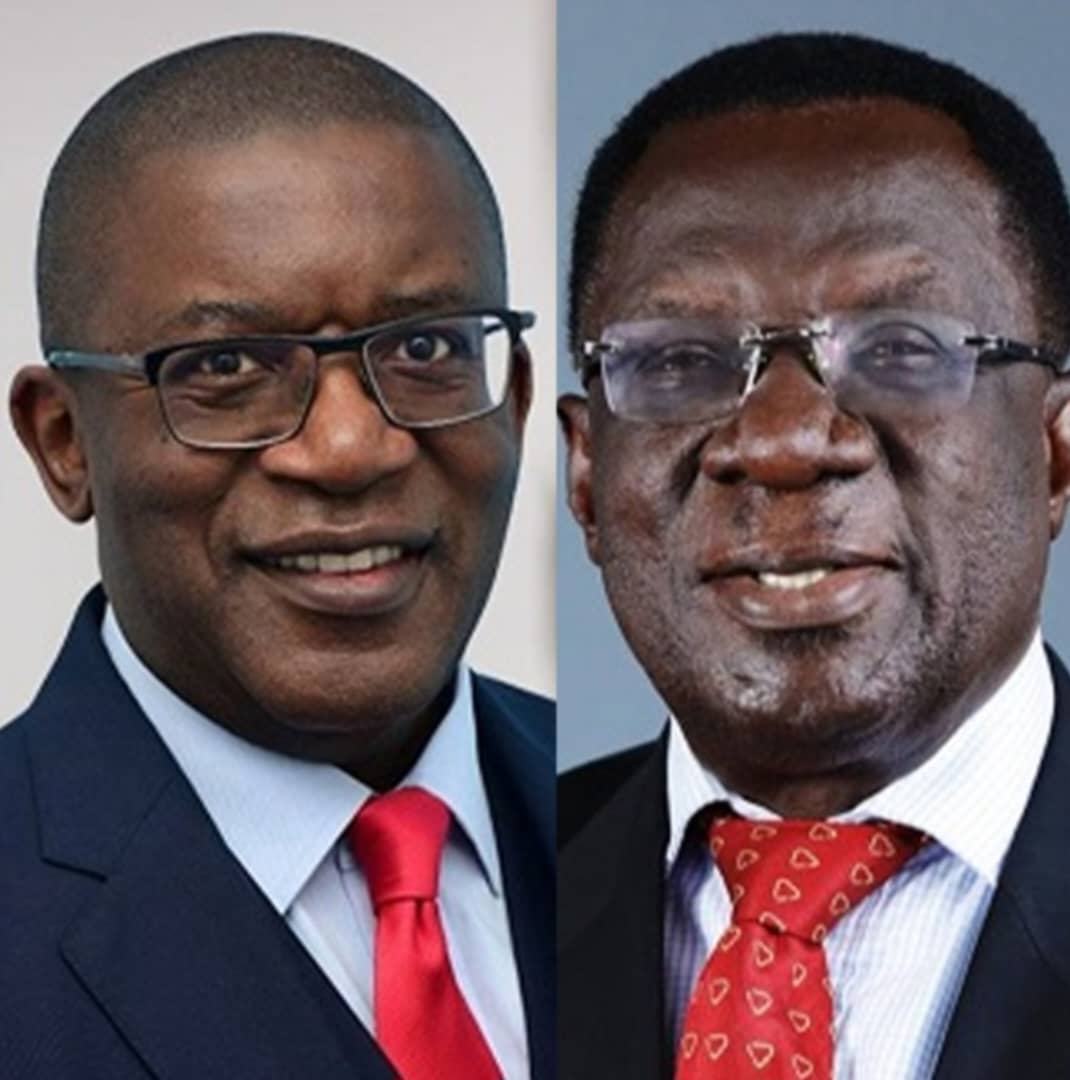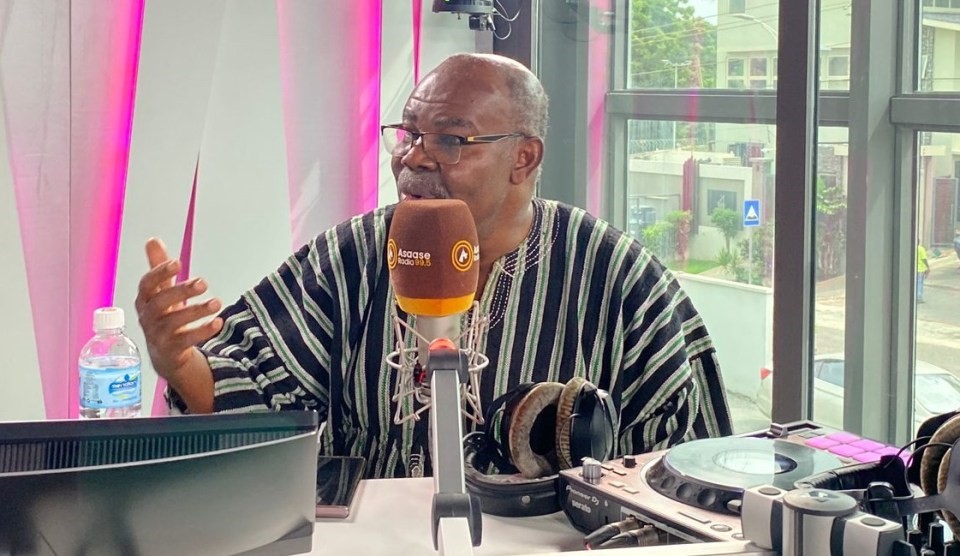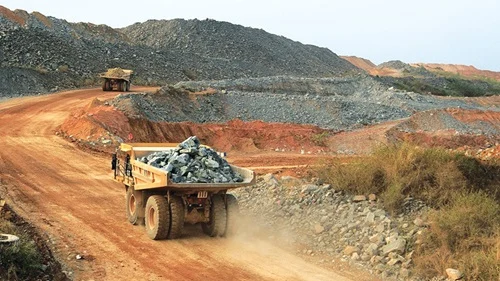The first prosecution witness of the State in the case of the Republic versus Solomon Asamoah and Christopher Ameyaw Akumfi, Mr Yaw Odame-Darkwa, has told the High Court trying the case that the Sky Train project was discussed at least in 8 separate meetings of the board of directors of the Ghana Infrastructure Investment Fund (GIIF).
He made this disclosure during cross-examination by a lawyer for the first accused person, Victoria Barth Esq. on Wednesday, 12 November 2025. The admission of the first prosecution witness is, however, contrary to what he said in his witness statement, which has been adopted by the court, for which he is being cross-examined.
Claims of the witness
From paragraphs 10 to 14 of his 16-paragraph witness statement, Mr Yaw Odame-Darkwa stated as follows:
“During my tenure, the Board approved funding for several infrastructure projects.
“I wish to state that the Sky Train concept was only introduced at one of our Board meetings.
“The Board did not receive any substantive proposal on the Sky Train project, and hence we did not deliberate or take any decision on the project.
“Additionally, the Investment Committee did not recommend the Sky Project to the Board for approval.”
“To the best of my knowledge, the Sky Train project has not been tabled for consideration at any Board Meeting.”
Cross-examination
However, under cross-examination, the lawyer for the first accused person, Victoria Barth Esq., posed the following questions to the state’s witness, to which he provided the following answers.
Question: You have just informed this court that “they showed us some board minutes”. When you said “they,” you meant the investigating officers and not the first accused’s former counsel.
Answer: It is very possible.
Question: The minutes that were shown to you were minutes of the board of GIIF during your tenure as a board member, which referred to the Sky train project. Is that not so?
Answer: If you have it, let me see.
Question: Very well, I will show you some board minutes from the meetings of the GIIF board, which the prosecution intends to rely on, and which refer to the Sky Train project.
The first is dated 5th September 2018—minutes of an emergency meeting of the GIIF, signed by the board chairman and Kofi Boakye. Please confirm if this was one of the minutes shown to you at NIB.
Answer: Yes
Question: Minutes of the GIIF board meeting held on 24 October 2018, signed by the board chairman and Kofi Boakye, then acting secretary. Please confirm if this minute was shown to you at NIB.
Answer: Yes
Question: Next, I will show you the minutes of the Board of GIIF dated June 25, 2019, signed by the Chairman and Harriet Abban, Company Secretary. Please confirm if this was also shown to you at the NIB.
Answer: Yes
Question: I’m now showing you the minutes of the GIIF board meeting held on 19 November 2019, signed by the board chairman and company secretary, Harriet Abban. Please confirm if this was shown to you at the NIB.
Answer: Yes
Question: Minutes of the GIIF board held on 8 January 2020 and signed by the board chairman and Harriet Aban.
Answer: Yes
Question: Review the GIIF board meeting minutes from April 28, 2020, signed by the Chairman and Secretary. Confirm if these minutes were shown to you?
Answer: Yes
Question: Take a look at the GIF board minutes 25th September 2020, signed by the board Chairman and the company secretary, and confirm if they were shown to you at the NIB
Answer: Yes
Question: Take a look at the GIIF board meeting minutes on 22nd December 2020, signed by the board chairman and secretary, and please confirm whether it was shown to you at the BIB.
Answer: Yes
Question: You will agree with me that I have shown you at least eight board minutes which refer to the Sky Train project, would you not?
Answer: Yes
Question: So, it cannot be correct when you say in paragraph 11 of your witness statement filed on 23 June 2025 that the Sky train concept was only introduced at one of our board meetings.
Answer: No. My Lady, the minutes that you showed me also have other projects being repeated.
Call for adjournment
After this answer, Victoria Barth, lawyer for the first accused, noted that “this witness stated that the minutes do not accurately reflect what transpired in the Sky train project. He was shown these minutes at the NIB. Let’s not forget the fact that the life of a man hangs in the balance. If he needs time to refresh his memory, we can adjourn.”
After this remark, the witness’s mouth was sealed, and Justice Audrey Kokuvie-Tay adjourned the sitting to Wednesday, 19 November 2025, for the cross-examination of the first prosecution witness to continue.
Background
In 2019, the Ghana Infrastructure Investment Fund (GIIF) invested US$2 million for a 10% stake in Africa Investor Skytrain Consortium Holdings (“Ai Skytrain”), the company developing Accra’s Skytrain light railway project.
The Africa Investor Group (the “Sponsors”) was selected and granted the rights to develop the project by the Government of Ghana (“GoG”) through the Ministry of Railways Development (“MORD”).
At the time, the Chairman of GIIF was Professor Christopher Ameyaw-Akumfi, and the Chief Executive Officer (CEO) was Mr Solomon Asamoah. The Chairman had previously been a member of the GoG. Mr. Asamoah was an international development banker who had been head-hunted into the position from a UK recruitment agency.
Following a change of government in Ghana in December 2024, the GoG, through the office of the Attorney General of Ghana, now alleges that this action was taken without Board approval, resulting in a willful financial loss to the state, as there is as yet “no railway built”.
It should be noted that there are no allegations of personal gain or diversion of funds in the charges, and the state has not charged anyone from MORD or the GoG-selected sponsors; only the GIIF Chairman and CEO have been charged.
The prosecution witnesses were previously being investigated for stealing and causing financial loss to the state. However, the State dropped these charges after the witnesses claimed that they did not approve the project, casting significant doubt on the reliability of their statements.
The prosecution’s case is built almost entirely on these statements to show that a legitimate transaction was “unauthorized”, without which there would be no case to answer.
“The prosecution’s case appears to be politically motivated, intended to fulfill a campaign promise to prosecute members of the previous government. It is unsupported by the facts, relying on demonstrably false witness statements,” a lawyer familiar with the case stated on condition of anonymity.



